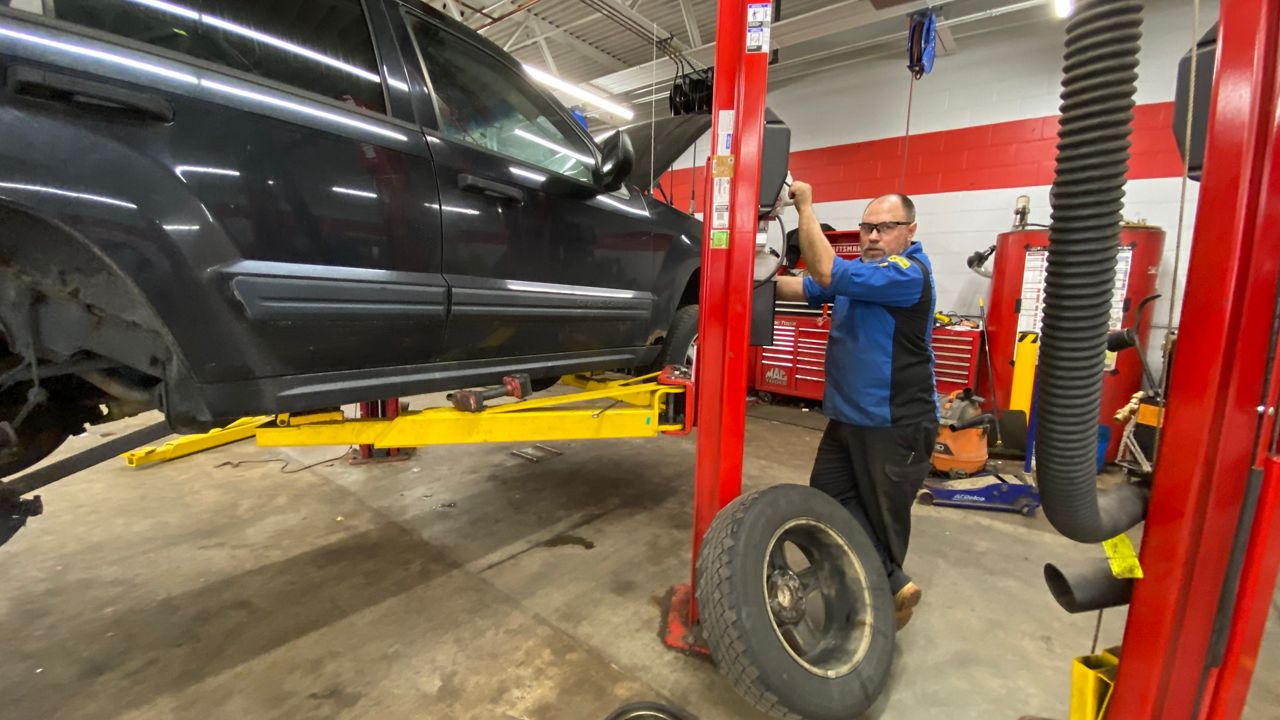The next time you head to your local car repair shop, you might be asked to sign a petition seeking to get a question on the 2023 ballot.
The “right to repair” initiative is an effort by vehicle repair shops and parts suppliers to get access to wireless technology that gathers information they say is necessary to make repairs.
As it is now, repair shops can plug an onboard diagnostics scanner — which looks like a tablet — into a port on most vehicles to see why something like a check engine light is on, said Tim Winkeler, president and CEO at VIP Tires & Service.
But newer vehicles push more of that information to a wireless system that consumers and his repair technicians cannot access, he said.
“As technology advances, it makes it sometimes harder and harder for independents to get the information they need to repair vehicles for their customers,” Winkeler said.
On the other side of the issue, the Alliance for Automotive Innovation, which represents manufacturers who produce 98% of the cars and light trucks sold in the U.S., called the initiative “entirely unnecessary.”
That’s because the industry entered into an agreement with repair shops and parts suppliers in 2013 that guarantees access to diagnostic information, according Brian Weiss, vice president of communications for the alliance.
“The nationwide agreement already requires the sharing of telematic data with an independent repairer under these conditions: when it is necessary for a repair, is also provided to an authorized dealer, and is not otherwise available,” according to a memo from Weiss.
He said the question should be called the “Maine telematics ballot initiative” not “right to repair.”
“Unlimited access by national aftermarket manufacturers and retailers to your vehicle telematic data is not right to repair,” he said.
The Auto Care Association, which represents parts manufacturers and suppliers and vehicle repair shops, has hired signature gatherers who will spend the next several months at stores and shops across the state, Winkeler said.
They have until Jan. 26 to get 63,067 signature to make the ballot, according to the Secretary of State’s Office.
Winkeler said while car dealers already have access to needed information, the independent shops do not. And he said those who want to work on their own vehicles also cannot access the wireless data.
“We as an industry have started to run into vehicles where we cannot diagnose a failure light on the dashboard if it requires wireless access to determine what that fault is,” he said.
Two years ago, Massachusetts voters supported a “right to repair” law that requires manufacturers to create an open data platform for vehicle owners and independent repair facilities. It passed with 75% support but has never been implemented because the manufacturers filed a lawsuit.
Now the effort is coming to Maine, and if it makes the 2023 ballot, it’s sure to be a hard-fought campaign.
The automotive alliance, which represents major manufacturers such as Ford, General Motors, Toyota and Honda, is already warning that consumers should be worried about how repair shops and parts suppliers will use their data.
In a four-page memo, the alliance raised questions about whether the data would be sold or used to sell products on screens inside vehicles.
“Data in the wrong hands or without proper cybersecurity controls is a threat to privacy and safety,” the memo reads.
Winkeler said his group wants only limited access to the data — just what’s necessary for them to fix the vehicle, not an ongoing portal into the information.
“What we’re asking for is, consumers should have the ability to direct the wireless data to their repair shop of choice when a repair is needed,” he said. “We are trying to preserve our right to repair and preserve the thousands and thousands of small repair shops across this state.”
